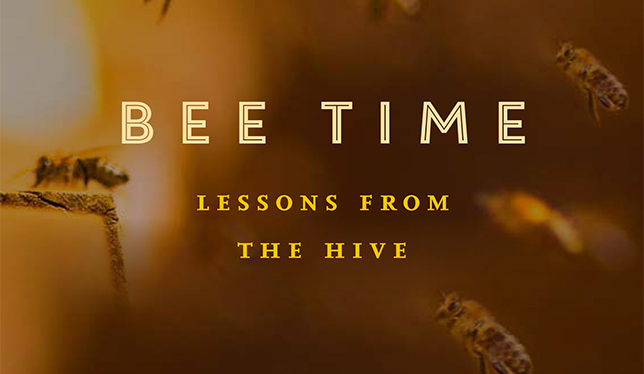
Winner of one of the most prestigious literary awards in the country, Bee Time: Lessons from the Hive didn’t start out as a book about bees. Rather, the insects were only supposed to be a metaphor for dialogue – the book’s intended topic – says its author, biologist Mark Winston, one of the world’s leading bee experts.
Dr. Winston walked away from bee research in 2002 to focus on his passion for teaching. He helped to develop a new model of education designed to stimulate student engagement that led to the creation of Simon Fraser University’s Centre for Dialogue, where he’s a professor and fellow. Only later, in writing the book, did he realize the extent to which bees had informed his perspective on how humans interact with one another. “The centre evolved out of the apiary,” says Dr. Winston, whose celebrated book unites these two distinct segments of his academic career.
Still buzzing weeks after receiving the news, in October, that his book had won the 2015 Governor General’s Literary Award for non-fiction (the jury called it “a powerful and lyrical meditation on humanity”), Dr. Winston recalls that he was 30,000 words into writing a first draft when he woke up one day and realized it wasn’t working. “It was really a humbling experience.”
He tossed everything out except for the prologue, a passage that describes the meditative state he achieves when walking into an apiary, an experience shared by many beekeepers. “Time slows down. Focus increases, awareness heightens, all senses captivated,” he writes. This is the experience he began to think of as “bee time” – those too-rare moments of awareness, he writes, when “deep human interactions are realized.”
Nearly two years after abandoning that writing project, he took his wife’s advice and began writing a book about bees; this time the idea of dialogue became the metaphor and the bees, as protagonists, reveal a model of collaboration that can benefit humans. “Bees are great communicators because they listen,” says Dr. Winston. “Bees put the good of the colony ahead of the individual. They accept information from all kinds of sources, without judging it. That’s pretty much how good dialogue works.”
He says he hopes the book inspires dialogue as well as improvements in agriculture and agricultural policy. He hopes, too, it inspires all of us to pay more attention to our relationship to the natural world. “I am biased here, but I think bees express the best of human traits, much more than they do the worst,” Dr. Winston says. He considers the rise of urban beekeeping – including apiaries on university campuses across the country – among the good-news stories when it comes to bees. “Having bees in cities reminds us that cities are part of nature too,” he says, hitting upon another apt metaphor. “We need to tend and take care of cities just like we do with gardens.”